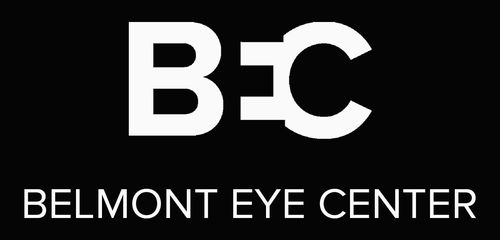In an ideal world, vision loss from glaucoma—a leading cause of blindness in the U.S.—would be a rare occurrence. After all, it’s a condition that can often be controlled with early diagnosis, routine monitoring, and daily eye drops to lower intraocular pressure. But for too many Americans, especially those in states that haven’t expanded Medicaid, access to essential eye care is anything but guaranteed.
“Glaucoma is one of the most frustrating diseases for an ophthalmologist to treat—not because we don’t have the tools, but because too many people never get the chance to use them,” says Dr. Sandra Belmont, medical director of Belmont Eye Center in New York City and one of the nation’s top ophthalmologists.
A National Crisis, Seen Through the Eyes of One Woman
Charisse Brown, a 38-year-old South Carolina resident, lost vision in her left eye due to untreated glaucoma and keratoconus. Despite working multiple jobs, she couldn’t afford her medication, let alone the $10,000 surgeries needed to save her sight. With limited insurance options and no Medicaid eligibility as a childless adult, Brown had to rely on a local charity—Lions Vision Services—to fund her treatment. By the time she received help, her left eye had gone completely blind for two months.
“Situations like this are heartbreaking because they’re preventable,” says Dr. Belmont. “No one in this country should go blind because they can’t afford a bottle of eye drops.”
Why Early Detection Matters
Glaucoma is often dubbed “the silent thief of sight” because it causes irreversible damage without noticeable symptoms in the early stages. For Black Americans, the risks are even higher: they are five times more likely to develop glaucoma and six times more likely to go blind from it. The disease also tends to develop earlier and progress faster.
“If you wait until you notice symptoms, it’s often too late,” Dr. Belmont warns. “That’s why preventive care and regular eye exams are so essential.”
Systemic Gaps Worsen Outcomes
In states that haven’t expanded Medicaid, like South Carolina, many adults simply fall through the cracks. They earn too much to qualify for Medicaid but too little to afford adequate health coverage. Without insurance, glaucoma medication can cost up to $300 a month—an impossible burden for those already choosing between rent and groceries.
“You don’t give them access to care. You let them go blind. And then you pay for their disability,” said Dr. Rebecca Epstein, a glaucoma specialist in South Carolina. “How backwards is that?”
Dr. Belmont agrees: “It’s time we stop treating blindness as a personal failing or an inevitable tragedy. It’s a systemic failure—and one that we have the power to fix.”
Nutrition’s Role in Eye Health
While policy change is vital, Dr. Belmont also emphasizes what individuals can do in the meantime—especially when it comes to nutrition.
“There are specific nutrients that support eye health and may help slow the progression of diseases like glaucoma,” she says. Her top recommendations include:
-
Omega-3 fatty acids: Help reduce inflammation and may lower intraocular pressure.
-
Vitamin C and E: Antioxidants that protect optic nerve fibers.
-
Lutein and Zeaxanthin: Filter harmful blue light and support retinal health.
-
Zinc and Copper: Help transport Vitamin A from the liver to the retina.
A diet rich in leafy greens, oily fish, citrus fruits, and colorful vegetables can make a measurable difference, Dr. Belmont says. “Nutrition won’t replace medication, but it can help fortify your eyes against further damage.”
When the System Fails, Communities Step In
Nonprofits like Servants for Sight and Lions Vision Services are helping to fill the gap where the health care system falls short. Their mobile eye units, donated surgeries, and transportation support are helping patients get life-saving treatment—but they can’t do it alone.
“Community groups are the heroes here, but they shouldn’t be the last line of defense,” says Dr. Belmont. “We need a nationwide commitment to equitable vision care, especially for those most vulnerable to blindness.”
The Takeaway
Vision loss from glaucoma is a medical issue, but access to care is a social justice issue. Until the system ensures everyone can access preventive treatment—regardless of income or insurance status—countless people will continue to lose their sight needlessly.
As Dr. Belmont puts it: “Blindness from glaucoma is not inevitable. But ignoring it is.”
📅 To schedule a glaucoma screening or learn more about preventive eye care, visit Belmont Eye Center.
🧡 Belmont Eye Center is committed to early detection, advanced treatment, and compassionate care—for every eye, every patient, every time.
